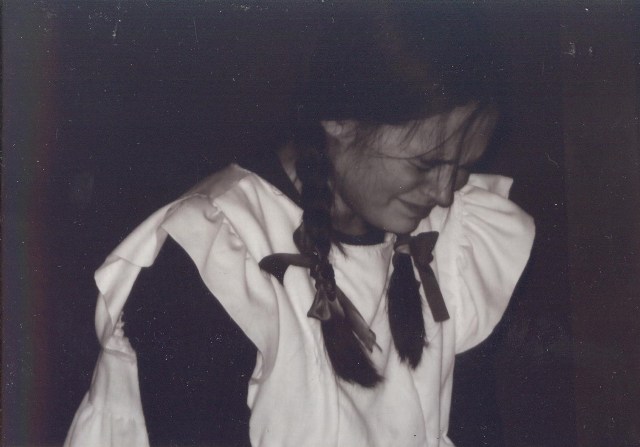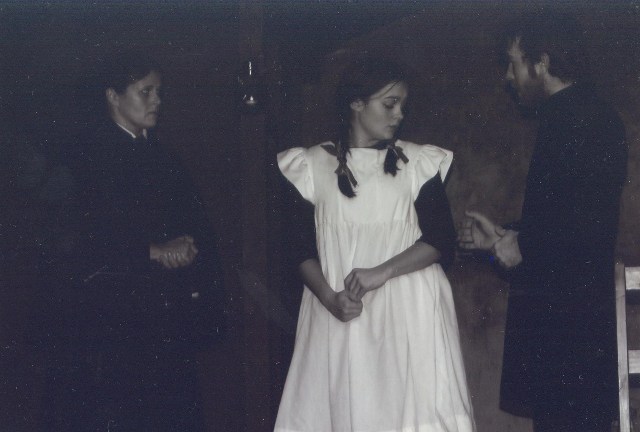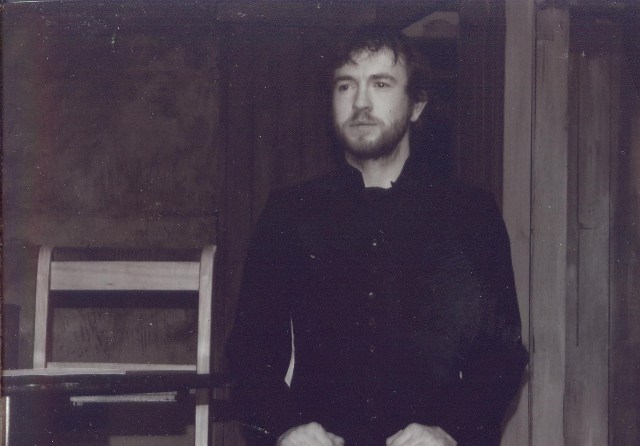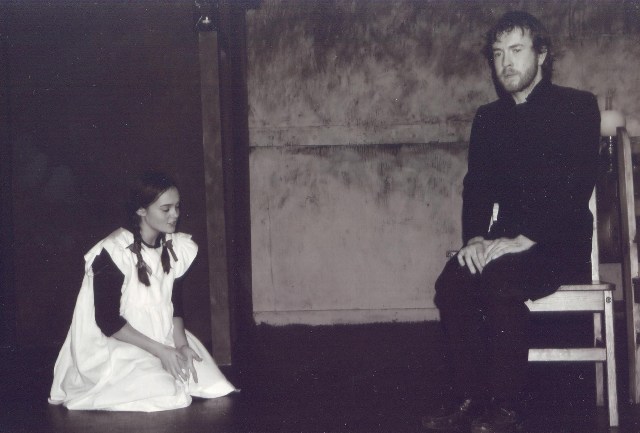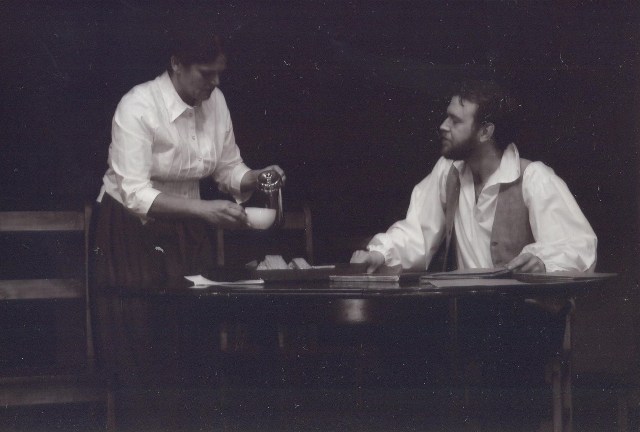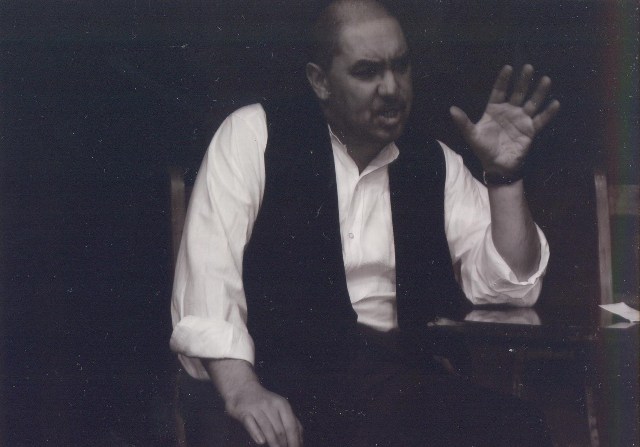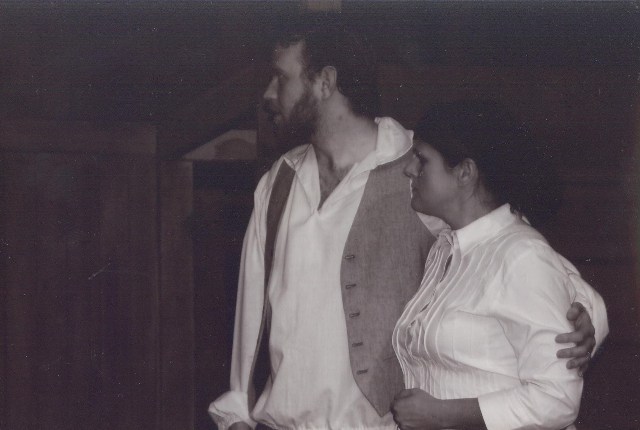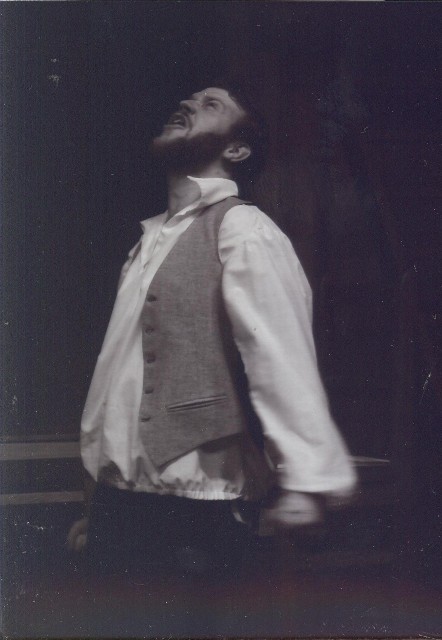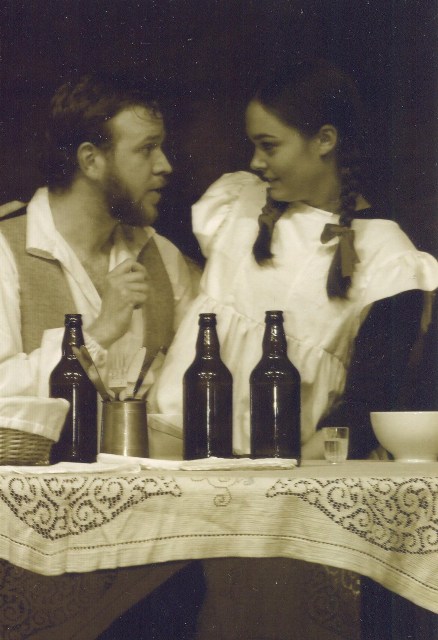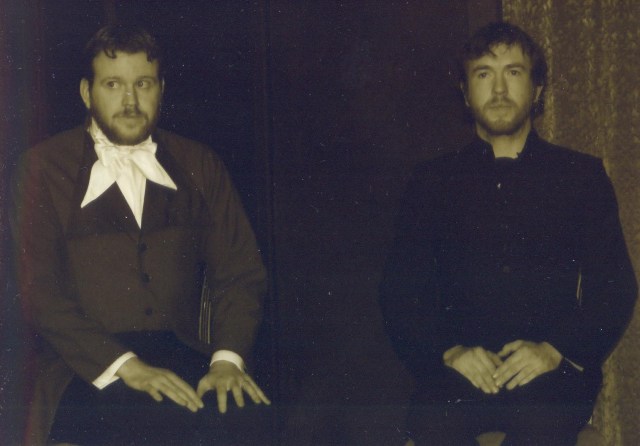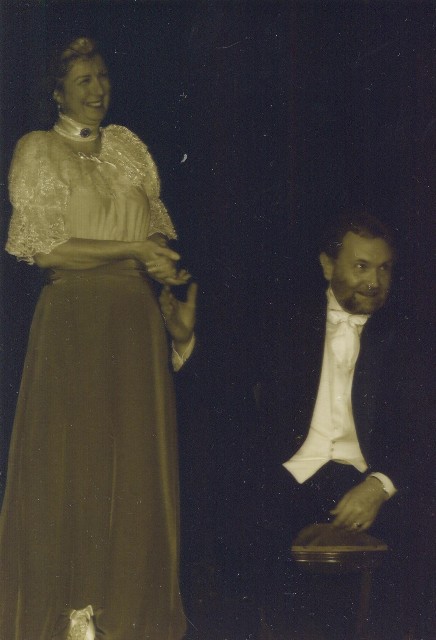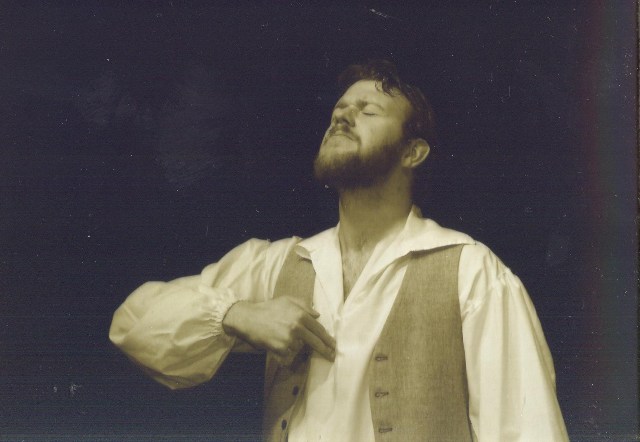The Bench Production
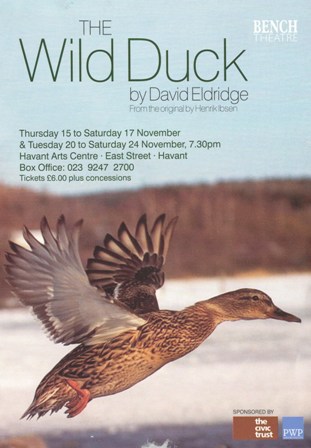
This play was staged at Havant Arts Centre, East Street Havant - Bench Theatre's home since 1977. This version of 'The Wild Duck' was adapted by David Eldridge in 2005.
Cast
| Jenson, a hired waiter | Julie Wood |
| Petterson, servant to Håkon Werle | Jeff Bone |
| Old Edkal | Peter Corrigan |
| Mrs Sørby, Housekeeper to Håkon Werle | Sally Hartley |
| Mr Flor, a dinner guest | Pete Woodward |
| Mr Balle, a dinner guest | John Scadding |
| Håkon Werle | David Penrose |
| Gregers Werle | Martin McBride |
| Hjalmar Edkal | Nathan Chapman |
| Gina Edkal | Megan Green |
| Hedvig Edkal | Charley Callaway |
| Relling, a doctor | Damon Wakelin |
| Molvik, formerly a student of theology | John Scadding |
Crew
| Director | Alice Corrigan |
| Producer | Lorraine Galliers |
| Stage Manager | Zoë Chapman |
| Assistant Stage Managers | Jeff Bone Julie Wood |
| Lighting Design | Jacquie Penrose |
| Lighting Operation | Dan Finch |
| Sound Design | Darryl Wakelin |
| Sound Operation | Sian Finch |
| Costumes | Sue Dawes |
| Publicity | Jaspar Utley |
| Set Design | David Penrose |
| Set Construction | Kevin West |
| Programme Editor | Derek Callam |
| Poster and Flier Design | Pete Woodward |
| Front of House Manager | Zoë Chapman |
Director's Notes
I saw the first production of David Eldridge's version of The Wild Duck in London, having spontaneously decided to go and see something at The Donmar Warehouse, one of my favourite theatres. The Donmar is fascinating because, despite its small size, it manages to do ambitious productions with big names and retains a great deal of independence and credibility. As an audience member, it gives you the opportunity to pay non-extortionate ticket prices to experience extraordinary performances up close. The Wild Duck was no exception and I was so excited by the simplicity of the adaptation that, I feel retains all the power of the story and a sense of the place and period without ever becoming bogged down by extraneous verbosity.
This simplicity of language can never be seen as simplicity of thought, however, as The Wild Duck has a multi-layered plot that we are still searching through, finding new ideas, symbols and possibilities for interpretation. The rehearsal process started with sessions that focused on textual analysis and these have enabled actors to continually rediscover their characters' motives. I'm someone with a logical, linear approach to directing, something which is often forced by necessity due to the short rehearsal process, where run-throughs of scenes are needed in order for them to be committed to memory. I've really enjoyed having the opportunity to move beyond run-throughs into experimentation. The cast has been hugely supportive, from offering up suggestions on rehearsals on voice and movement. My father also came on board as Movement Director, which has been a first for the company, and this has been interesting as he has attempted to make sense of what I want and what the actor can do and broken down the process so that it fits in to the play as a whole. He has also provided me with a sounding board for my ideas, which has been hugely useful for me as I consider myself a director who is still learning.
I have spent the last week or so, at the time of writing, with a big grin on my face as the play and the characters have started to take shape. I genuinely look forward to sharing the play with an audience, and hope that we are able to do it justice and I have every confidence in my cast that this will be the case.
Alice Corrigan
Reviews
The NewsJames George
This offering needs heating up to allow for dramatic burst of energy
Much 19th century European and Russian drama has always left me cold, probably due to the stilted, stolid 1950s translations served up for study in our schools and colleges, although the angst-ridden self-centred posturing of a lot of the characters always adds to my irritation.
So I was interested to see if David Eldridge's 2005 re-working of Ibsen's The Wild Duck - The Bench's latest offering - could blow away my prejudice. Unfortunately this new adaptation seems as stolid as its predecessors, with no attempt made to make the language more accessible to a modern audience, wordy Ibsenisms galore clunking out and grating on the ear.
But there is some good work from Bench regulars David Penrose and Peter Corrigan, particularly Corrigan as the drink-ridden father-figure. It was Damon Wakelin however, who took the words and ran with them. Of the cast he alone had the true measure of the dialogue and his character came the closest to sounding real. His performance added an energy to the piece which it sometimes lacked from others on opening night.
Martin McBride could and should shift up through the emotional gears more often, but the presence of his character - the man who believes he's always right, interfering in the lives of others - became physically sickening after a while; and that is meant as a compliment to the actor. A worthy and welcome attempt at bringing an under produced writer's work to the area though.
The News, 16th November 2007
